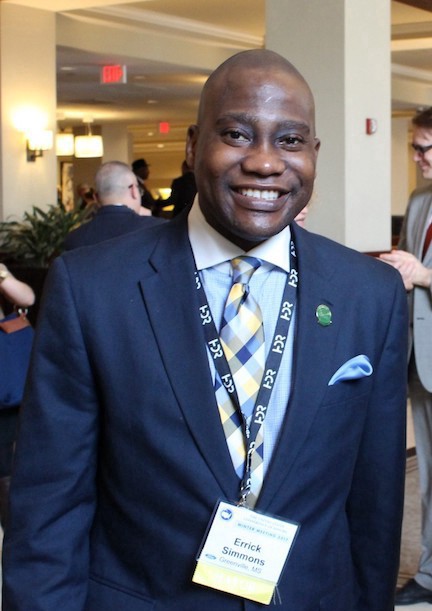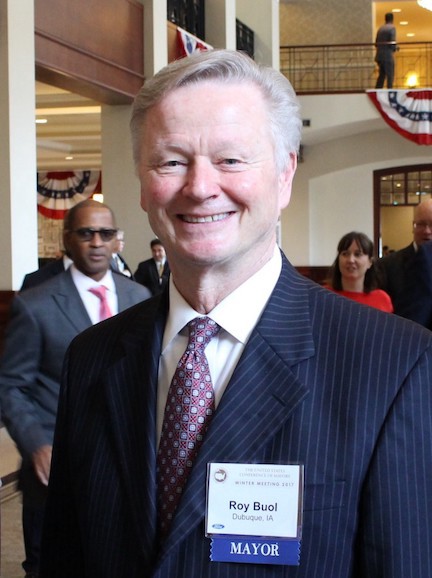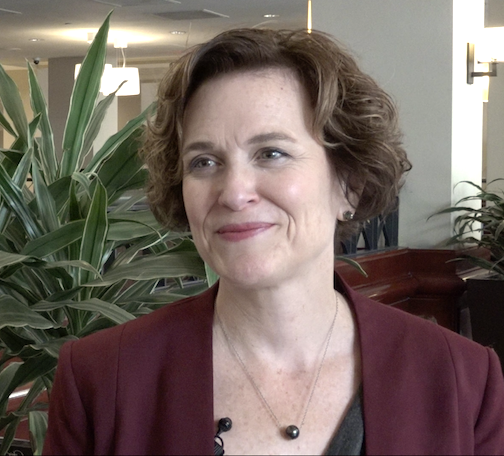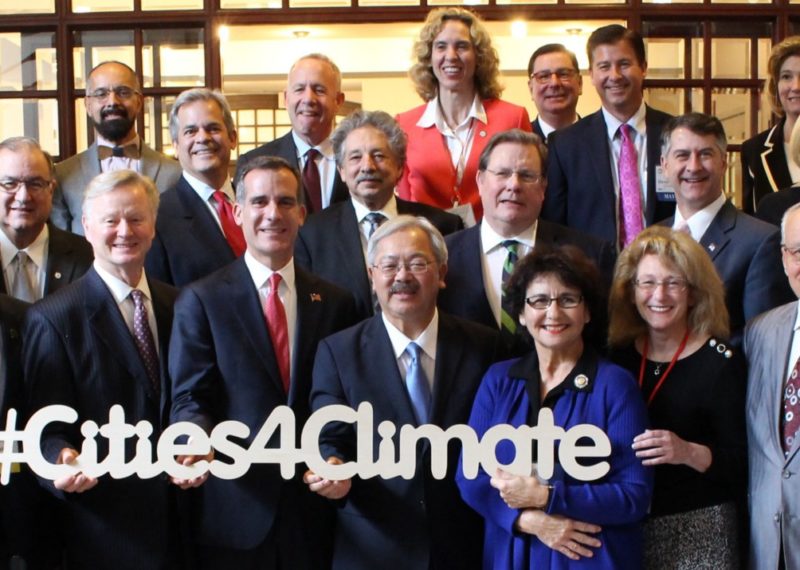Climate change is a global issue, but its impacts hit people at the most local levels. That’s why mayors from all over the nation recently gathered in Washington D.C. to voice their commitment to climate action to protect their cities.
Three mayors from cities along the Mississippi River described frequent flash flooding, which destroyed houses, shuttered businesses and bruised local economies. They spoke of their efforts to become resilient and sustainable, regardless of what’s happening — or not happening — at the federal level.
Here’s what they had to say.
Mayor Errick Simmons of Greenville, Mississippi

The climate impacts
“If you look at the effect that climate change has had on the Mississippi River Valley, about $50 billion in disasters… since 2011 has strongly affected vulnerable populations, particularly in my city. We had a flood in 2011. We just had a high flood event in March. We had record numbers. Our 100-year flood stage was about 12 inches. We saw over 14 inches in March of 2016.”
Resilience efforts
“We’re looking at how the river comes up and how it goes down. We’re working with our local contractors to see what we can do to get those houses in that area at higher levels. We also have the port. Our port has over 50 million tons of raw materials that come through the Mississippi River Valley, but we have a low area in our port. So we’re working with our port and our economic development professional to see how we can raise that level up, so it’s an economic concern as well.”
His message
“We’re asking the new administration to look at climate change and look at great policies because it affects cities… Climate change [will] impact those vulnerable populations and displace people, but more importantly, it hurts the infrastructure in our cities and so those monies and those funds that we can get from the new administration or some policy that would help … create resilient economies … would be helpful for our cities.”
Mayor Roy Buol of Dubuque, Iowa

The climate impacts
“We’ve had six disaster declarations since 1999 in our Bee Branch Creek watershed. That designation was the result of the six flash flooding events that we’ve had in that watershed, so to mitigate that we’re going to be investing over $200 million dollars in daylighting a creek that was buried 100 years ago that is woefully inadequate to carry the water from very frequent storm events we’re seeing now with climate change, but once that creek work is done, we will have restored 1,400 homes and businesses back to a livable condition. We’re actually going to be doing some work inside some of these homes that are experiencing mold and mildew and leaking basements, those types of things along with the mitigation work to address all of that heavy flash flooding water that we have seen in the past 10 to 15 years.”
His message
“I would just ask the incoming President and the new administration to really seriously look at the issues we’re dealing with at the local level around climate change and how we can mitigate those effects so we can make communities that are livable for everyone.”
Mayor Betsy Hodges of Minneapolis, Minnesota

The climate impacts
“It’s surprising to many, but Minneapolis is one of the cities that’s most impacted by climate change. There are studies that have shown that. It surprises people because we’re not on a coast, but we can see it happening. Our weather is getting wetter. It’s getting hotter, and that’s going to have to change how we do business.
Since we’re getting hotter weather over time and wetter weather over time in a city like Minneapolis, it matters for our infrastructure — anything from snow plowing to asthma rates for anybody in the city, let alone in some of our low-income communities of color that are near highways — anything from our health outcomes to our economic outcomes it has an impact on whether we can get people around. So transit and transportation is incredibly important as well.”
Her climate action
“One of the primary things we’ve done is put together a clean-energy partnership agreement with our utilities in the city where we’ve come together to agree about using renewables moving forward. And I co-chair that with members of the utility and we have set really assertive goals together so that over time we are using more and more renewable energy.”
Her Message
“The message that I would bring to the incoming administration is that climate change is happening, that it’s real, that human beings have an impact on the climate, and the things we do to reduce that impact can help shape the future for generations to come, and it’s incredibly important that we do it and we do it now.”
Nexus Media is a syndicated newswire covering climate, energy, policy, art and culture. You can follow us at @NexusMediaNews.


